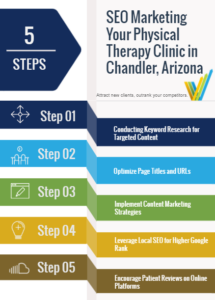If you have a thousand links today versus the one you had just a year ago, will you be far better off in search?
…Maybe.
It’s easy to think “more is better” with just about anything.
But with links…more could be a total nightmare.
So when your SEO informs you of a new link you have, should you jump out of your chair for joy, go home, and kiss your wife?
Or should you simply raise your eyebrows in mild excitement?
Honestly, …it can be hard to tell.
So take a minute to learn how to evaluate the value of a link:
The Most Valuable: A Link That Provides Value Beyond SEO
A high-SEO value link is great to have, no doubt. But even better is one that drives you a flood of traffic.
Because you ultimately want sales from SEO, right?
And typically it works such that as you keep attracting links, you rank higher in the search engines, more traffic comes your way, and eventually, you have more sales.
Well, a link to a well-read website short-circuits that process and gives you both the SEO value – and the traffic too.
And you can get a massive gush of traffic and sales fast.
…But, it’s exceedingly difficult to earn these types of links because you have to write one heck of an amazing piece of content at popular blogs that get bombarded by suggestions all the time.
Relevancy of the Website to Your Niche
Google has to see that your new link comes from a website relevant to your niche.
In the past, SEOs would simply bombard their clients’ websites with hundreds of thousands of links. These could come from all sorts of bizarre places from around the web…like payday loan sites, cell phone websites, and other regions of the web’s underworld.
It was fine. It worked.
…But it’s a complete waste of your time today.
And in fact, it could get you penalized, which costs you more time and money.
The more relevant the website to your niche, the greater the value of your link.
Domain/Page Authority
Fortunately, both are easy to measure. You can use Moz’s online tool, or their Chrome extension.
“Domain Authority” measures the domains that link to your domain, the number of total links, and then tracks them over time.
Moz’s idea is to give you an idea of your website’s ability to rank high in Google in comparison to other websites.
The higher the better.
“Page authority” refers to exactly the same concept on a page-by-page basis.
Small websites have a DA of 20-30. And they’re helpful.
Large corporations everyone knows rank 90+.
And large online brands that offer an amazing amount of value, but maybe that you haven’t heard of, are around 40-60.
How You Got the Link on That Website
The more effort it takes to get a link on a website, the more reward you get from Google.
Yes. Google prefers hard work.
Let me clarify (and qualify) this concept a little.
It stems back to how link building used to work. Back several years ago, an SEO might create an account at several internet forums and add your link to their signature. They’d go nuts posting messages on forums.
But that’s easy…anyone can do that.
Those links counted for quite a bit back in their day.
Now, just a handful will get you in big, possibly irreparable, trouble.
Compare that to writing a 1,500-word blog post at Forbes and getting published.
…That takes a lot of work. 20-30 hours or so.
Google recognizes that.
And what if someone else posts your link in a blog post of their own?
That’s good too.
You did the hard work of creating and promoting a blog to the point where someone did your promotional work for you.
Google doesn’t want to see posted links making up the majority of your link profile.
They want to see you earning and winning permission from others. That means searchers value what you say.
And that’s the type of site Google wants at the top of its search rankings. Not something that just about anyone can manipulate to the top.
Links are the Lifeblood of Your Search Rankings…Work on Earning Them
Online, you earn attention.
People read or watch what you have to say.
And if you don’t offer enough value, they quickly turn you off, forget you forever, and go to your competitor.
The more you do to offer valuable information your competitors do not, the higher and more secure you remain over the long haul in a search.






